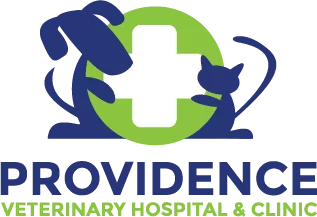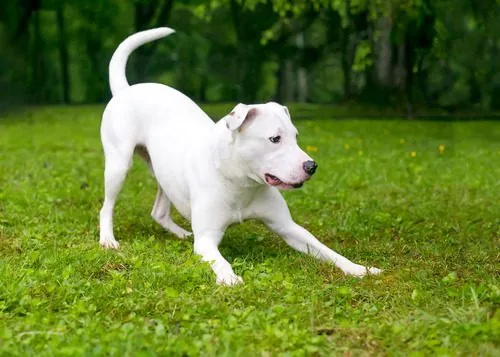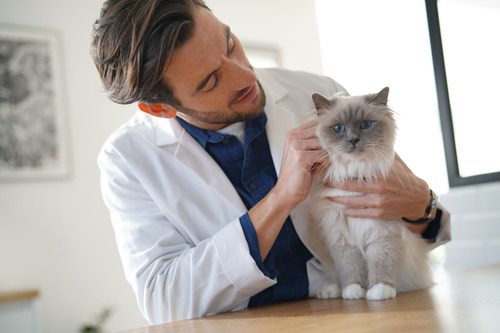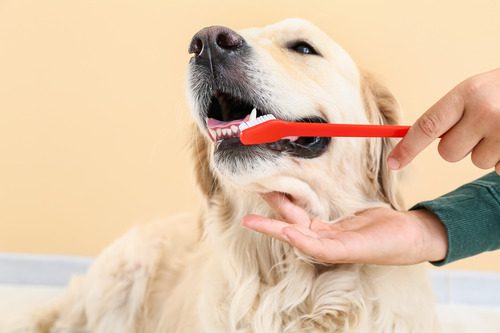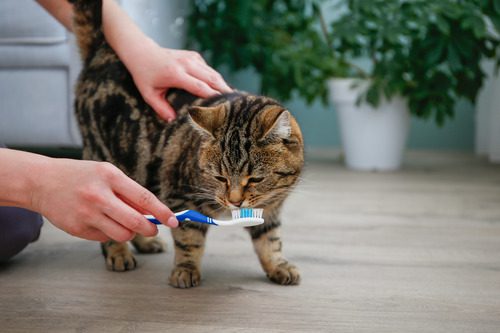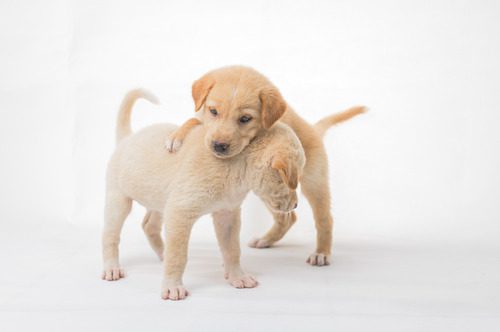My Dog Ate a Turkey Bone: What Should I Do?
Thanksgiving and other holiday gatherings often include a delicious feast, but they can pose unexpected risks for our pets. If your dog ate a turkey bone, it’s essential to know what steps to take to ensure their safety. Turkey bones, whether cooked or raw, can cause severe health issues for dogs, including choking, internal injuries, and blockages. In this blog, we will discuss the potential dangers of turkey bones, the symptoms to watch for, and the necessary actions you should take. If you suspect your dog has eaten a turkey bone, please call Providence Veterinary Hospital and Clinic in Alameda, California, at (510) 521-6608 or (510) 521-5775 for immediate assistance.
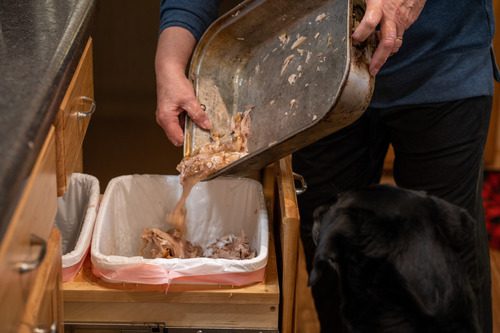
Potential Dangers of Turkey Bones for Dogs
Choking Hazards
When a dog eats a turkey bone, the first and most immediate risk is choking. Turkey bones can splinter easily, creating sharp pieces that can get lodged in the throat or block the airway. If you notice your dog struggling to breathe, coughing excessively, or pawing at their mouth, it could indicate a choking hazard. It’s crucial to contact Providence Veterinary Hospital and Clinic right away if you suspect your dog is choking.
Internal Injuries
Turkey bones can splinter into sharp fragments, which can cause severe damage to your dog’s digestive tract. These sharp pieces can puncture the esophagus, stomach, or intestines, leading to internal bleeding and severe pain. Symptoms of internal injuries may include vomiting, lethargy, abdominal pain, and bloody stool. If your dog ate a turkey bone and is exhibiting any of these symptoms, seek veterinary care immediately.
Intestinal Blockages
Another significant risk is intestinal blockages. If a dog swallows a large piece of bone, it may become lodged in the intestines, causing a blockage. This can prevent food and fluids from passing through the digestive tract, leading to vomiting, dehydration, and severe abdominal pain. An intestinal blockage is a medical emergency that requires prompt veterinary intervention. If you suspect your dog has a blockage, call Providence Veterinary Hospital and Clinic for guidance and support.
Symptoms to Watch For
If your dog ate a turkey bone, it’s essential to monitor them closely for any signs of distress. While some symptoms may appear immediately, others could take hours or even days to develop. Below are some key symptoms to watch for:
Vomiting and Diarrhea
Vomiting and diarrhea are common symptoms that can indicate your dog is having trouble digesting the bone or that it has caused an internal injury. Persistent vomiting and diarrhea can lead to dehydration, so it’s crucial to seek veterinary care if these symptoms occur.
Lethargy and Weakness
If your dog becomes unusually tired or weak after eating a turkey bone, it could be a sign of internal injuries or an intestinal blockage. Lethargy and weakness are serious symptoms that warrant immediate veterinary attention.
Abdominal Pain and Swelling
Abdominal pain and swelling are indicators that something is wrong in your dog’s digestive system. If your dog shows signs of discomfort when you touch their abdomen or if you notice visible swelling, contact Providence Veterinary Hospital and Clinic immediately.
Changes in Appetite and Behavior
A sudden loss of appetite or changes in behavior, such as increased restlessness or difficulty lying down, can signal a problem. Keep a close eye on your dog’s eating habits and overall demeanor, and report any concerns to your veterinarian.
What to Do if Your Dog Ate a Turkey Bone
If your dog ate a turkey bone, taking quick and appropriate action is crucial. Follow these steps to ensure your pet receives the care they need:
- Contact Your Veterinarian: The first step is to contact Providence Veterinary Hospital and Clinic at (510) 521-6608 or (510) 521-5775. Explain the situation and provide details about your dog’s behavior and symptoms. Your veterinarian will advise you on the next steps and whether your dog needs to be seen immediately.
- Monitor Your Dog Closely: While waiting for veterinary advice, closely monitor your dog’s behavior and symptoms. Keep them calm and restrict their activity to prevent further complications. Note any changes in their condition and relay this information to your veterinarian.
- Avoid Inducing Vomiting: Do not attempt to induce vomiting unless specifically instructed by your veterinarian. Inducing vomiting can cause more harm than good, especially if the bone fragments are sharp and can cause additional injuries on the way back up.
- Provide Comfort and Reassurance: Keep your dog comfortable and reassured during this stressful time. Speak to them in a calm, soothing voice and provide a safe, quiet space where they can rest.
Preventing Future Incidents
To prevent your dog from eating turkey bones or other harmful objects in the future, consider the following tips:
Safe Food Storage
Ensure all food, including leftovers, is stored securely and out of reach of your pets. Dispose of bones and other potentially dangerous items in a secure trash can with a lid.
Supervision During Meals
Supervise your pets during meal times, especially during holidays or gatherings when food is more likely to be left unattended. Educate family members and guests about the dangers of feeding bones and scraps to pets.
Provide Safe Chew Toys
Provide your dog with safe, veterinarian-approved chew toys to satisfy their chewing instincts. This can help reduce the temptation to chew on bones or other harmful objects.
When to Seek Emergency Care
Knowing when to seek emergency care for your dog is critical. If your dog exhibits any of the following symptoms after eating a turkey bone, contact Providence Veterinary Hospital and Clinic immediately:
- Difficulty breathing or choking
- Persistent vomiting or diarrhea
- Lethargy or unresponsiveness
- Severe abdominal pain or swelling
- Bloody stool or vomiting
Your veterinarian will provide the necessary care and treatment to address the situation and ensure your dog’s health and safety.
Seeking Professional Help for Your Dog’s Safety
If your dog ate a turkey bone, it’s vital to act quickly and seek professional veterinary care. Turkey bones can pose serious health risks, including choking, internal injuries, and intestinal blockages. By recognizing the symptoms and knowing what steps to take, you can help protect your dog from harm. Remember to contact Providence Veterinary Hospital and Clinic in Alameda, California, at (510) 521-6608 or (510) 521-5775 for immediate assistance and guidance. Your dog’s well-being and safety are our top priority.
Recent Posts
What Does Your Dog’s Tail Wag Really Mean?
What Does Your Dog’s Tail Wag Really Mean? Dogs use their tails for much more than just…
Feline Leukemia: Prevention and Detection
Feline Leukemia: Prevention and Detection Cat Feline Leukemia is a serious viral disease that affects felines worldwide….
A Team Effort: How Home Care and Professional Cleanings Keep Your Dog’s Teeth Healthy
A Team Effort: How Home Care and Professional Cleanings Keep Your Dog’s Teeth Healthy Dental health is…
The Perfect Pair: Home Care and Professional Cleanings for Your Cat’s Teeth
The Perfect Pair: Home Care and Professional Cleanings for Your Cat’s Teeth Caring for your cat’s teeth…
What is Bordetella and Why Should You Care?
What is Bordetella and Why Should You Care? Bordetella is a term many pet owners hear when…
Providence Veterinary Hospital & Clinic serve Alameda, CA as well as Oakland, San Leandro, and the surrounding areas with superb veterinary medicine and gentle, compassionate care. We’ve been a part of this community since 1947 when a veterinarian started seeing pets in his home after the end of World War II. He built an animal hospital right under his house, and that’s where we remain to this day (with modern remodeling in 2016, to outfit the hospital with the latest medical technology and equipment, of course!).
